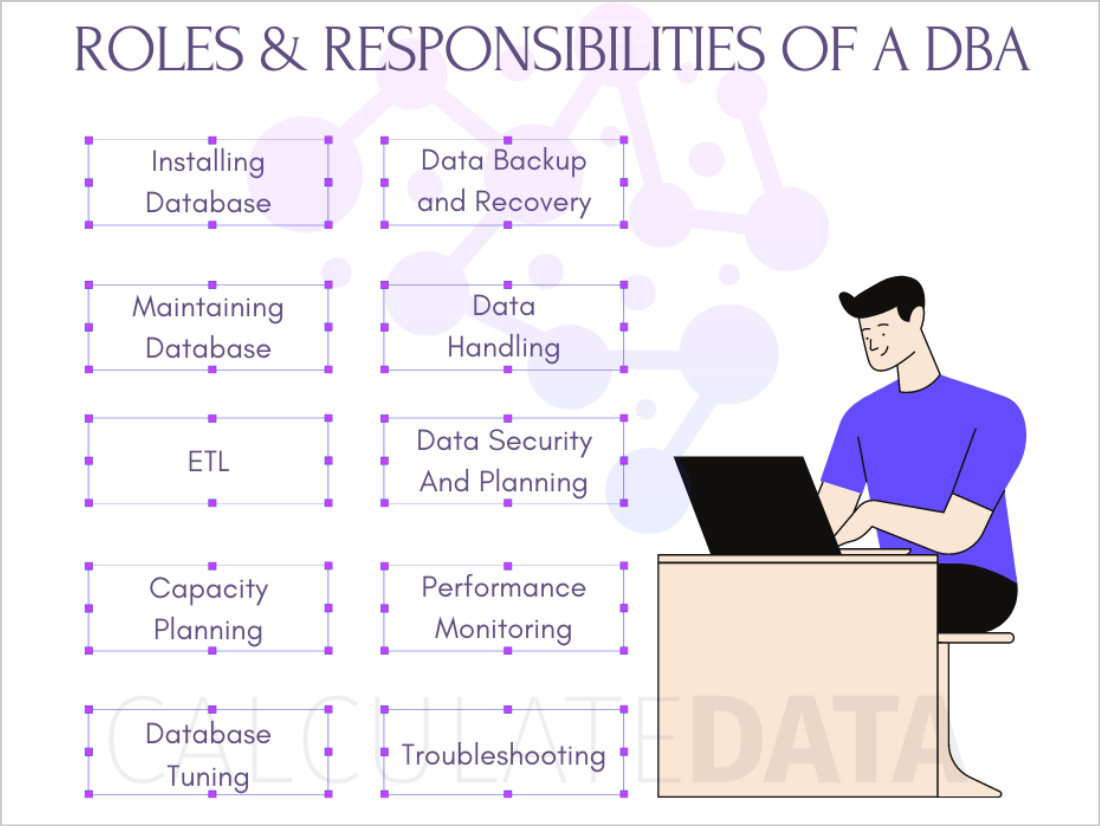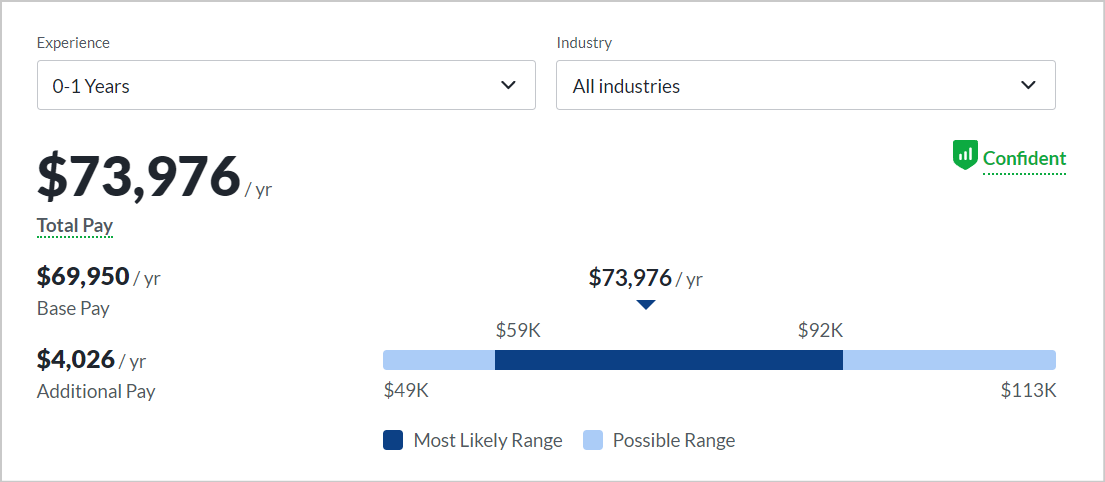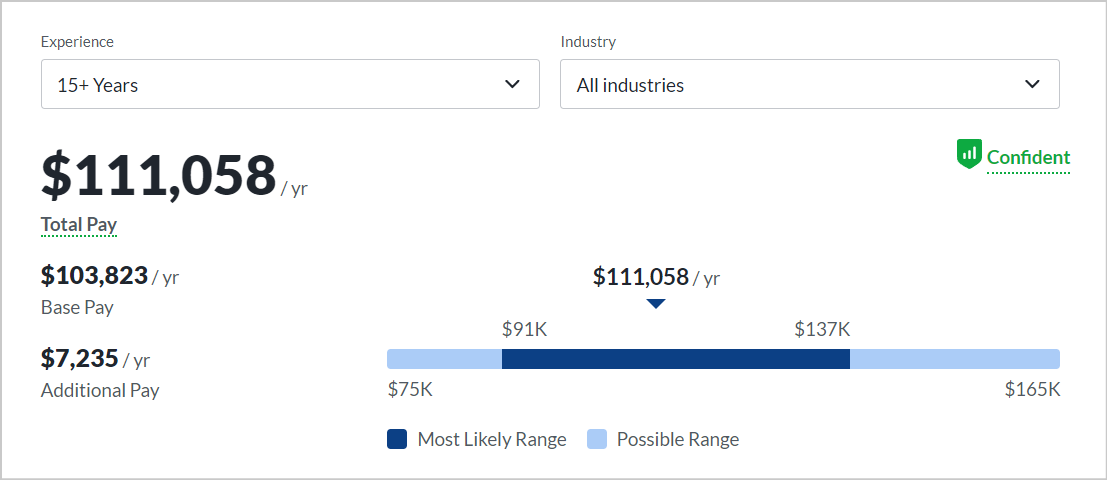Free Data Analytics Course
Jumpstart your journey with 25 essential learning units in data analytics. No cost, just knowledge.
As data collection becomes increasingly important for large enterprises, the demand for data administrators has grown exponentially. With more data to maintain and more value to gain from it, compensation for data administrators has increased too, with senior professionals earning upwards of $180,000.
However, entering the field isn’t without its difficulties. Real-life experience is essential to landing a job as a database administrator, and this can be hard to come by when you’re just starting.
Of course, with the right knowledge, you can gain the education, skills, and portfolio you need to impress any hiring manager. In this guide, we’ll cover everything you need to know about data administration, the essential skills, and what you can do right now to start working towards your goal.
Is It Hard To Become a Database Administrator?
It can be difficult to become a database administrator because, compared to other tech careers, it’s harder to use portfolio work to compensate for a lack of experience. Real industry experience dealing with unforeseen challenges and large-scale organizations is very important to employers and very difficult for educational courses to simulate or teach.
What Does a Database Administrator Do?
The typical role of a DBA (database administrator) involves multiple responsibilities, including reviewing and approving new database designs, regulating the rules of access to certain data, and monitoring the database’s security protocols. They also maintain everyday operations and oversee upgrades and patches.
How To Become a Database Administrator: A Nine-Step Guide

There’s no denying that becoming a database administrator takes time, effort, and hard work. However, thanks to online resources and increasingly accessible education options, it’s easy to get started.
-
Learn the Fundamentals
-
Meet the Educational Requirements (and Go Beyond)
-
Develop Your Skillset
-
Work on Sample or Open-Source Projects, or Pursue Volunteer Work for Hands-On Experience
-
Pursue an Internship
-
Consider a Certification
-
Remember: Your Network Is Your Net Worth
-
Find a Mentor
-
Work Toward the Job You Want
Learn the Fundamentals

To begin your journey, the first thing you need to do is get familiar with databases. This includes how to use them as well as how to manage them. Here are some examples of basic tasks you can begin with:
- Creating databases
- Querying databases
- Configuring databases
- Building system objects (e.g tables)
- Backing up a database
- Restoring a database system
- Assigning roles and permissions within a database
- Setting up user authentication for security
- Optimizing database performance
- Troubleshooting common issues with connectivity or login
These are all beginner-level tasks that you will be able to complete using online resources, user guides, or by enrolling in a short introductory online course.
Meet the Educational Requirements (and Go Beyond)
Once you’re familiar with the basics, it’s time to begin your education in earnest. There are a lot of options available here and you will probably make use of more than one.
Remember, hard work and motivation are more important than the method of education you choose. Just as an unmotivated person can fail even after attending the best university, a motivated hard worker can succeed even if completely self-taught.
University Degree
While an undergraduate degree is not a hard requirement for becoming a DBA, it is still very common. Typical majors for database administrators include:
- Computer Science
- MIS (Management Information Systems)
- Information technology
- Software Development
- Cloud Computing
Other Learning Resources
In addition to universities, there are many other places where you can find relevant information and guidance to help you study.
Online Courses
Online courses are a highly accessible and ultra-focused way to study a new skill like database administration. With sites like Coursera and Udemy, you can find thousands of database management courses, covering everything from how to open a database and perform a query, to creating virtual networks with Microsoft Azure.
You can find long-form courses that take as long as nine months to complete or you can build up your own curriculum from shorter modules of your choice. Guided projects are also available to help you put your knowledge into practice.
Another type of online course is bootcamps. These tend to be six to nine months long and aim to turn beginner-level students into job-ready graduates. If you can’t find one for database administrator roles specifically, you can pick something related like a software engineering bootcamp, similar to students who choose a general tech major at university before moving into DBA.
YouTube, Websites, Blogs, and Books
Online content can help you understand what skills are important and why, learn about industry trends, and discover what life is like as a DBA. Successful professionals can be found publishing their thoughts and views in many formats: YouTube, websites, blogs, books, and podcasts.
Follow Experts on Social Media
There are even higher numbers of experts creating short-form content on social media. From sharing challenges to posting resources, following these accounts will help you find quality information without even looking for it.
Develop Your Skillset

Soft and technical skills are essential for finding and doing a database administrator job.
Technical Skills
Some core technical skills include:
- Query languages like SQL
- Programming languages like Python or Javascript
- Knowledge of database software and database structures
- Understanding of relational database frameworks
- Experience with Azure, IBM DB2, MySQL, and Oracle databases
- Sufficient knowledge of database management systems and database design
- Good problem-solving skills
Soft Skills
Other essential skills for a career in database administration include:
- Business intelligence
- Strong communication skills
- Critical thinking skills
- Excellent speaking and presentation skills
- Ability to collaborate with others and make compromises
- Good organizational skills
- Detail-oriented approach to tasks
Work on Sample or Open-Source Projects, or Pursue Volunteer Work for Hands-On Experience
Any hands-on experience you can earn will be invaluable to your career. When you’re just starting out, your standards don’t have to be too high—it doesn’t matter if the project is small or unpaid, because everyone has to start somewhere, and each job you complete will help.
If you want to start working on something straight away, you can start a personal sample project, or a guided project you find online. While you work on this, you can also search for collaborative projects like open-source or volunteer initiatives.
If possible, you can also find some small freelance jobs to experience what it’s like to understand and deliver on client requirements.
Create a GitHub Profile
GitHub profiles are the industry standard for displaying, showcasing, and sharing your projects. It can act as a portfolio or as part of a portfolio to show potential employers or anyone else you want to work with.
If you find a collaborative project to work on, you’ll most likely also share and edit work on GitHub with the other participants.
Pursue an Internship
The most impressive form of experience you can have as a new graduate is a professional data internship. You can find these independently using specialist job boards, or enroll in a university course that includes a year’s work placement.
Internships are valuable because they’re almost identical to professional experience—you’ll be in a real office, helping a talented team of real DBAs with actual projects, and adhering to deadlines. Not only will it solidify the skills and knowledge you obtained during your study, but it will also teach you how to work with others in a professional environment.
Consider a Certification
The world of database administration is closely linked to organizations like Microsoft, Google, IBM, and Amazon because they provide thousands and thousands of companies with database servers and services.
Because of this, it can be very useful to earn one or multiple professional certifications in this area. For example, if you’re applying to a company that uses Azure, a Microsoft Azure certification will instantly prove that you have the exact expertise they need. There are also many SQL certifications you can earn as well.
Get To Know Other Data Analytics Students
Bart Teeuwen
Global Business Analyst, Global Talent Intelligence (GTI) at Meta
Jo Liu
App Quality Analyst at Snap Inc.
Maura Fields
Data Analyst at Northeastern University
Remember: Your Network Is Your Net Worth
Although you won’t start applying for jobs until you’ve completed your education, preparing for the job search begins the moment you decide to become a DBA. One of the most valuable things you can do during this time (other than studying) is networking.
Every introduction is full of possibilities—you never know what someone might have to offer you in the future or what you might have to offer them. LinkedIn is a great way to keep track of all your connections. It doesn’t matter if you shared an amazing conversation or just a quick greeting, everyone you meet deserves an invitation to connect on LinkedIn.
Online Communities
If you choose to study independently or through an online course, it can seem difficult to meet people and network. Online communities can help you overcome this by bringing together students, enthusiasts, and professionals from all over the world.
Data-related communities can be found everywhere, from the Data Talks Club on Slack to the Data Science subreddit (with over 860,000 members!).
Conferences and Meet-Ups
Conferences may feel like a professionals-only club, but participation is often open to students, juniors, and enthusiasts too. There are both online and in-person data conferences you can look into and it’s best to try to attend a mixture of both to develop your network.
Find a Mentor
There’s just no substitute for a real professional who will answer your questions directly. This is what a mentor can be: someone who knows more than you and is willing to share that knowledge.
This kind of relationship can help you pinpoint your weaknesses early on and discover new areas to study, as well as give you inside information on what it’s like to work as a DBA. If you find a mentor at your first job or internship, you can also get valuable information about how the company works, what it values, and how to position yourself for promotions and new opportunities.
Work Toward the Job You Want
At a certain point in your education, you’ll likely find yourself with specific interests and talents that you want to focus on. Leaning into this is a great idea, as you will be able to cultivate a specialization that will help you become more valuable to employers.
Apply to Junior Roles and Gradually Progress up the Ladder
Being realistic about your experience level is very important when it comes to job searching. Not only will it be easier for you to land a junior role, but it will also be a more beneficial role for your career.
Tailor Your Resume to Each Role
You will find the jobs you want under various role titles such as “systems administrator,” “application database administrator,” and “(specific database service) database administrator.” When you apply to roles, it’s important to tailor your resume and cover letter to each application. This definitely takes a lot of time but will show employers that you’re a serious candidate.
Practice Your Interview Skills
Once you’ve landed an interview, you will need to practice your interview skills. There are various ways you can do this, from researching common interview questions and drafting answers to hiring a professional to train and practice with you.
Career Transition to Database Administrator: Where To Start

There are multiple paths into database administration, depending on what kind of previous roles and experience you have.
Related Career Transition
When you’re moving from a tech-related position to database administration, there are a lot of ways in which your previous experience and existing network can help you out during the process.
For example, with prior knowledge of computer science and programming languages, you might be able to jump straight into database-specific courses and study content. You’re also likely to know or work with a few DBAs at your current company that can give you tips and referrals, and put you in touch with useful people in their network.
Unrelated Career Transition
If you don’t work in the tech industry, your network might not be as useful, but can still help. Most businesses work with data, even if your previous role had no relation to it. Finance, retail, food, and many other industries collect and use enough data to need a database administrator, and your knowledge of their specific industry can be valuable.
How Much Can You Earn as a Database Administrator?
Here’s what you can expect to earn:
Entry-Level

As an entry-level database administrator in the United States, you can expect to make between $59,000-$92,000 during your first year on the job.
Mid-Level

After spending three or four years as a database administrator, you will have developed enough experience and expertise to land higher-paying roles. At this level, your annual salary should be somewhere between $70,000-$105,000.
Senior

Once you have around 10 years of experience, you will be ready for just about any senior DBA role. At this stage, your salary can reach upwards of $165,000.
How To Become a Database Administrator FAQs
We’ve got the answers to your most frequently asked questions:
Is Becoming a Database Administrator a Good Career?
Databases are an integral part of an organization’s infrastructure and the demand for DBAs isn’t going away anytime soon. This, combined with high job satisfaction and competitive salaries, makes database administration a great career.
Can You Become a Database Administrator Without a Degree?
Degrees are popular in this field, but it is possible to become an entry-level database administrator without a college education. You can learn the essential skills in other ways, such as independent study or online courses, and gain experience through personal, open-source, and volunteer projects.
Does a Database Administrator Have To Code?
Many people in database administration jobs do know how to code, as computer science is a popular major in this field. However, the most important skill for a DBA is knowing how to use SQL, which is a domain-specific language, not a programming language like Python or C++.
Since you’re here…
Considering a career in data analytics? We can get you there. Don’t take our word for it – check out our student reviews. After just 6 months of study in our fully flexible Data Analytics Bootcamp, we’ll boost you into a job in the field or your tuition back. Get started now with our free data analytics course.






